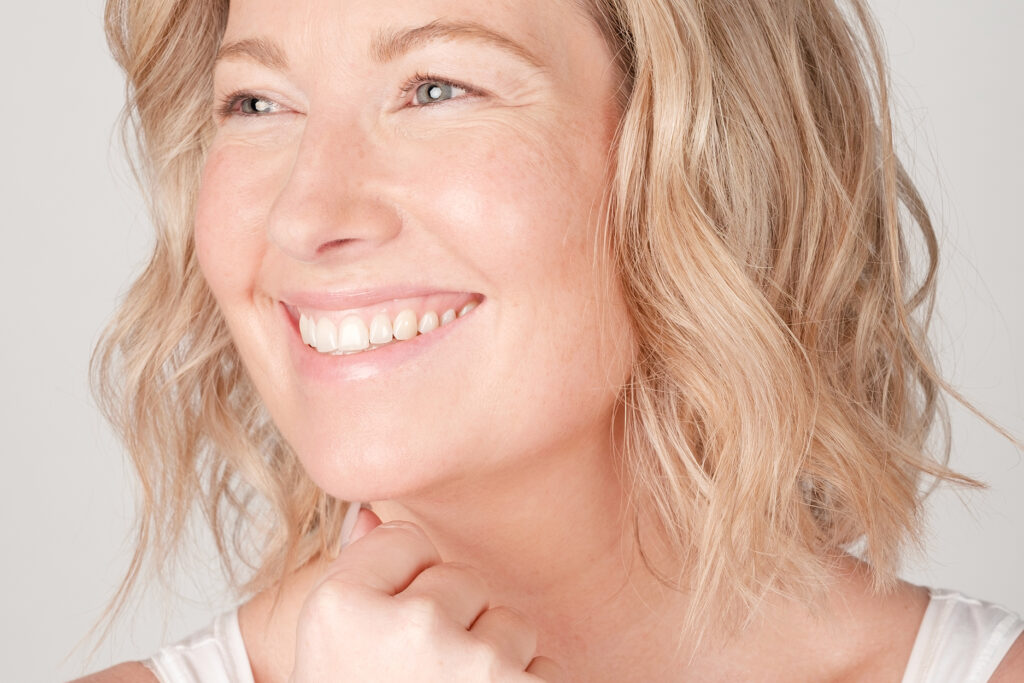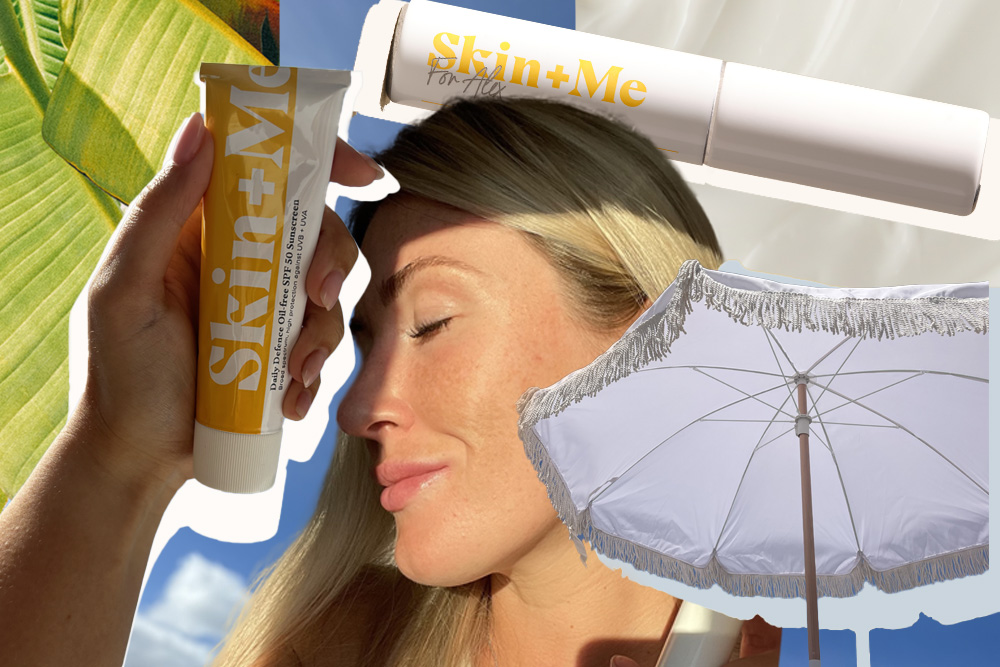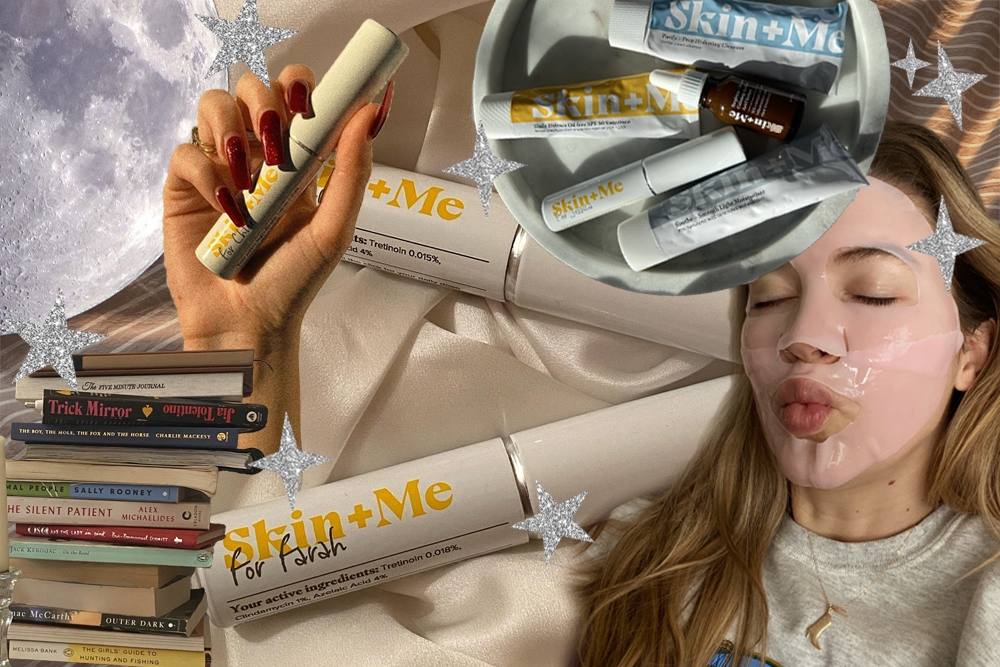Melasma 101

Link to share article here:
Looking After Your Skin at Every Stage of Your Life
Everyone is different, and our skin is as unique as we are. With so many different skin types, skin goals and lifestyles, every person’s skin will have slightly different needs – and there’s no one-size-fits-all skincare routine that’ll work for everyone.
However, as our skin goes through the different stages of life, everyone’s skin goes through some of the same changes. Our skincare needs to adapt as we age and go through significant life events such as pregnancy. This is the cheat sheet for everyone, so we all know how to protect and care for our skin throughout our lives.
How to look after your skin during childhood
There are important things to know about caring for skin during childhood that we can use to help protect our children’s delicate skin. The big one at this age is sunscreen. Sun exposure is a major cause of skin-ageing, and the UV radiation from the sun reduces the function of our skin barrier.
It’s proven that just one blistering sunburn in childhood can increase your chance of developing melanoma skin cancer by 50%. So, it’s important to start protecting skin from a very early age with regular daily applications of sunscreen.
How to look after your skin during puberty
Almost every teenager will get some form of spots, breakouts or acne, ranging from mild, to severe. The main cause of teenage acne are hormones that activate sebaceous glands and oil production causing blocked pores and spots.
This is the time to get into good habits, with a morning and evening cleansing routine. Cleansing is important for everyone, and all skin types will benefit from a good cleansing routine. Even just cleansing can help mild cases of acne. Cleansers with added actives, like salicylic or lactic acid, are great – as skin tends to be oily at this life stage. However, if your acne is more severe, adding a prescription-strength active is the next step as well as a light oil-free moisturiser.
If you’re prone to eczema, swapping your skincare routine to one that doesn’t trigger acne is a good first step – along with seeking guidance from your GP or dermatologist.
How to look after your skin in your 20s
This is a good time to add an antioxidant serum, like vitamin C. Aim for between 10-20%, depending on what your skin can tolerate and how sensitive it is. You should also be using a light moisturiser with barrier-repairing ingredients like humectants.
Stick to a simple yet effective skincare routine that consists of twice-daily cleansing and using light oil-free moisturisers. You should also continue to wear sunscreen every day to protect your skin from UV radiation and slow ageing.
How to look after your skin in your 30s
In our 30s we begin to lose collagen, the building blocks of our skin, simply due to thirty years of exposure to the elements. This is the time to add a retinoid to your evening routine, which will help to maintain the structure of your skin. Tretinoin is a great option, as it works hard to improve texture, pigmentation, fine lines, wrinkles and acne, as well as prevent them.
For healthy, glowing skin and to tackle the first signs of ageing, AHAs are a good option. However, our dermatologists recommend establishing a good retinoid routine first, before adding any additional active ingredients. If you’re implementing a retinoid into your evening routine, it’s even more important to be applying sunscreen every day, otherwise, all of the retinoid’s hard work can be undone.
How to look after your skin in your 40s and beyond
By now, our skin begins to get more dry and sensitive. At this point, many people switch to a heavier moisturiser – but this can actually cause or worsen breakouts. If you’re prone to adult acne, stick to lighter moisturisers, but add an extra layer with a hydrating serum such as one containing hyaluronic acid. If your skin can tolerate it, try to step up the strength of your retinoid.
Three skincare rules for life
1. SUNSCREEN
It’s the single most important thing you can do for your skin. Whether you want to slow the signs of ageing or not, applying a broad-spectrum, high-factor sunscreen every day protects your skin from UV damage and prevents skin cancer. SPF 30 or higher is recommended, so find the right one for your skin type and apply generously.
2. HOLISTIC WELLNESS
Everything in moderation (chocolate, alcohol, caffiene etc.), drink plenty of water and move your body however you can. Stick to the basics and look after yourself. Our favourite fundamentals? Laughter is the best medicine. Time outdoors is good for the soul (and vital for vitamin D). Dance like nobody’s watching.
3. SELF-COMPASSION
Above all, treat yourself with the same care and attention you would for a friend in need. Put yourself first if you have to and take time out from the rush of daily life wherever possible. Remember, mental health is just as important as physical health.
How to look after your skin when taking hormonal contraception
Your choice of contraception can have a massive effect on your skin. If you opt for hormonal contraception and have a tendency toward breakouts, this is important to remember. In particular, progesterone-only contraception often aggravates spots.
A number of combined oral contraceptive pills and hormone-free contraceptives are available, and considered more suitable for acne-prone individuals. Be sure to ask your GP for advice.
Similarly, if you are coming off the pill and you are acne-prone, make sure you are using effective prescription-strength skincare, as stopping the pill can commonly cause breakouts which can be severe if not addressed prior to stopping.
How to look after your skin while on your period
Whether it’s breakouts that always flare up at the same time, or your skin looking clearer the week after your period – all these fluctuations have an effect. It works like this: Your hormones shift on the first day of your period and oestrogen levels increase until they become higher than progesterone levels.
If your skin acts up during your period, take the time to learn what changes and tackle it head on. If you’re seeing more spots, don’t panic. Stay away from oil-based products and occlusives, as this could exacerbate the issue.
Instead, focus on simple skincare and light layering. Skin feeling drier than normal? Focus on hydration – add in a hyaluronic acid serum or switch your moisturiser to a thicker formulation. If in doubt, keep it simple and don’t overwhelm your skin with new products – stick to your tried and true favourites.
How to look after your skin during pregnancy
Pregnancy is a hormonal whirlwind and your skin, like the rest of your body, will go through a lot. Many women experience breakouts in their first trimester, irrespective of having suffered from acne before but some women may find their skin improves particularly towards the second trimester. Many effective active ingredients cannot be used during pregnancy and must be stopped before starting a family.
Therefore, get prepared and sort your skin beforehand so that you are starting from an effective baseline that can be maintained with regular pregnancy-safe skincare. If breakouts are a problem, there are a few active ingredients that are generally considered safe, but the pros and cons of each need to be discussed with your GP.
How to look after your skin during menopause
Oestrogen levels drop dramatically during menopause, which triggers acne. HRT, a common menopause treatment, also triggers acne. We also lose almost 30% of our collagen within the first few years of menopause. An effective skincare routine consisting of key ingredients such as retinoids is key.
As skin feels dry due to loss of collagen, there is a tendency to reach for heavy moisturisers or facial oils, but combined with hormones these can cause even more problems with breakouts. Instead, it’s important to focus on replenishing and soothing your skin barrier without clogging your pores. Active ingredients such as retinoids will both help fight any breakouts as well as help build up collagen.
The bottom line?
Dr Malvina Cunningham, Consultant Dermatologist, sums it up best, “Our skin is the largest organ we have and plays a vital role in maintaining our general health. It protects us from outside injury, regulates our temperature and fluid balance and has immunological functions in protecting us from harmful microbes.”
“Our skin is constantly exposed to the environment that can stress the skin causing damage, skin disease and premature ageing. The effect this has on our physical appearance can even affect our mood. Daily skincare that includes protection and repair should therefore be a stable part of looking after ourselves.”
New to Skin + Me? Get your first month of personalised skincare for £4.99 with promo code DOSE – complete our quick consultation here.
Looking for a routine refresh? Add the Dream Routine to your Skin + Me subscription.
In need of a restock? Head to The Skincare Shop for one-off purchases of your Routine Essentials.
New to Skin + Me? Get your first month of personalised skincare for £4.99 with promo code DOSE – complete our quick consultation here.
Looking for a routine refresh? Add the Dream Routine to your Skin + Me subscription.
In need of a restock? Head to The Skincare Shop for one-off purchases of your Routine Essentials.



